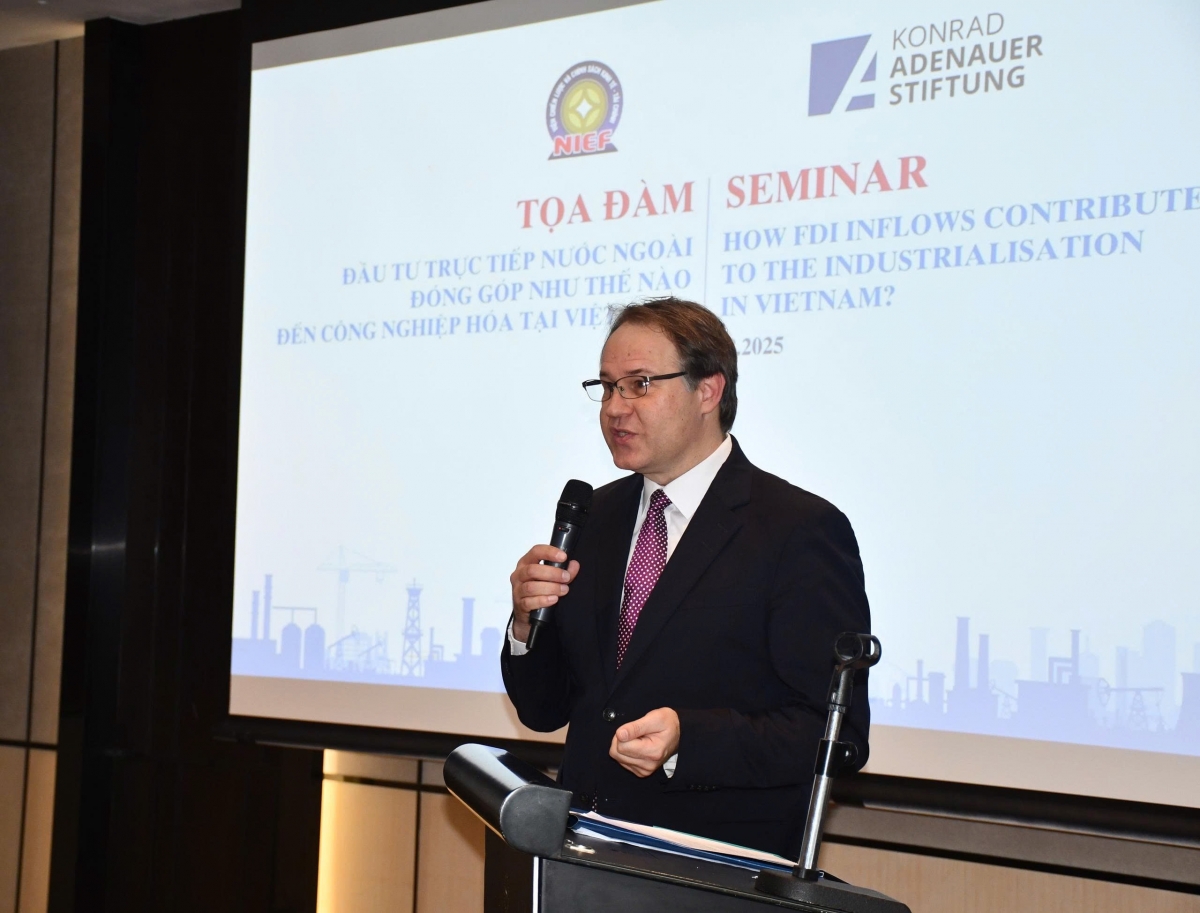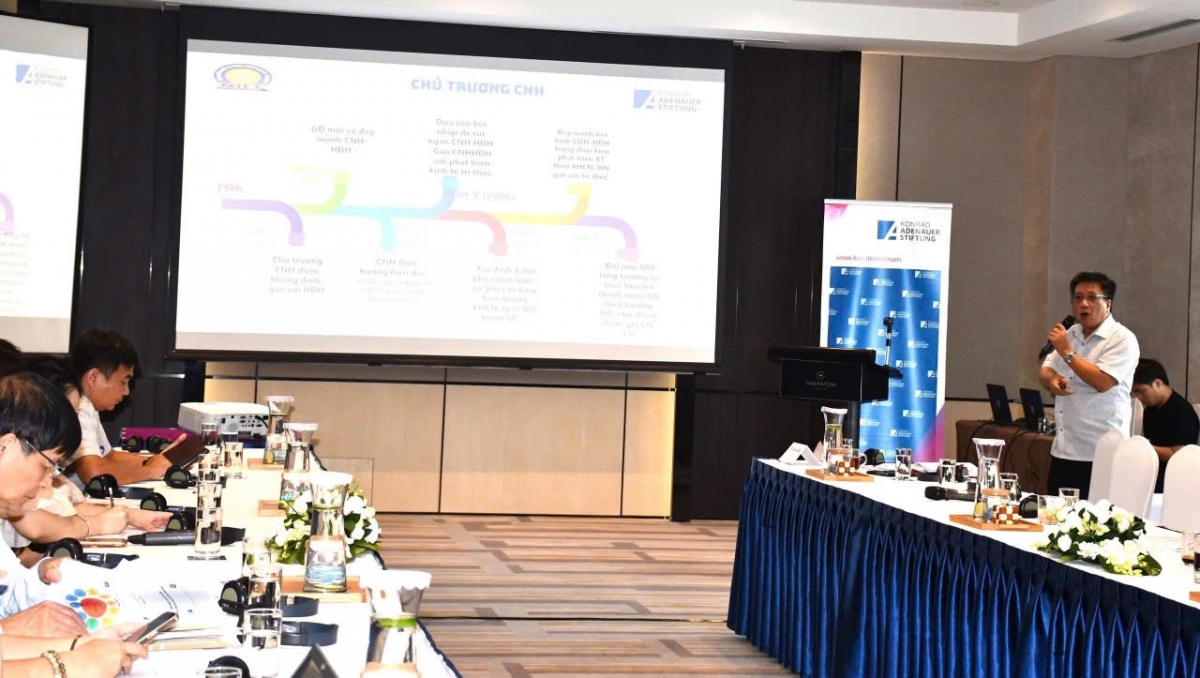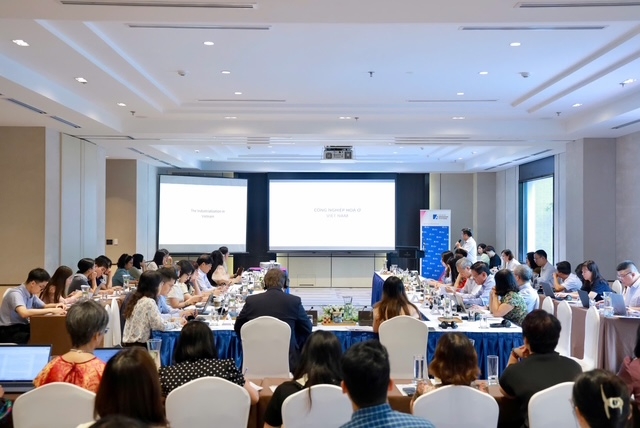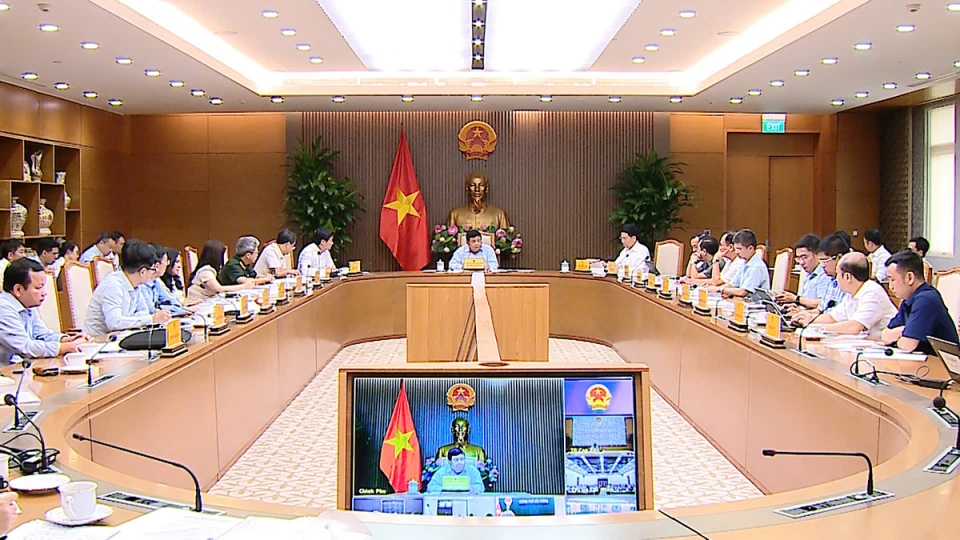FDI- a key driver accelerating Vietnam’s industrialisation path
VOV.VN - Foreign direct investment (FDI) continues to play a vital role in Vietnam’s path to industrialisation by fueling economic growth, enhancing industrial capacity, and accelerating structural transformation, according to a seminar held in Hanoi on August 7.

The event, titled “How FDI Inflows Contribute to Industrialization in Vietnam?”, was jointly organised by the National Institute for Economics and Finance (NIEF) under the Ministry of Finance, with support from the Konrad-Adenauer-Stiftung (KAS) in Vietnam. A comprehensive report assessing FDI’s role in Vietnam’s industrial development was also launched during the seminar.
Speaking at the event, Stefan Samse, Resident Representative of KAS Vietnam, noted that FDI has long served as a cornerstone of Vietnam’s economic reform and integration. Beyond capital, FDI has opened up export markets, enabled technology transfers, and catalysed institutional reforms.
“However, when it comes to industrialization, the picture is more nuanced. While FDI has delivered undeniable gains, challenges remain, particularly in increasing domestic value-added, strengthening linkages with local SMEs, and ensuring meaningful technology,” he added.

Echoing this view, Dr. Tran Toan Thang, head of the International Studies and Integration Policies Division at NIEF, underlined that FDI not only contributes capital, but also provides management expertise, technological know-how, and access to global markets. These contributions, he said, have enhanced exports, productivity, workforce quality, and the development of specialised industrial clusters linked to global value chains.
FDI has also contributed to labour restructuring and urbanisation, by facilitating a shift from low-productivity agriculture to higher-value industrial and service sectors, he added.
Experts at the seminar pointed out that FDI has consistently played a key role in Vietnam’s export growth. Between 70% and 79% of the country’s total export turnover in recent years has come from FDI enterprises. This has helped transform Vietnam from an exporter of agricultural and textile products into a major global manufacturing hub for electronics and high-tech goods.
In 2024, FDI enterprises accounted for 97.74% of Vietnam’s electronics, phones, and computer exports. In earlier years, this share had even reached 99%. FDI also holds dominant shares in other key export sectors - 60% in textiles and garments, 69–72% in footwear, and 81–93% in transport equipment.
Major multinational corporations such as Samsung, Intel, LG, and Canon have chosen Vietnam as a strategic link in their global supply chains. In addition to production, foreign-invested enterprises have established research and development (R&D) centres in Vietnam, further positioning the country as a destination for science, technology, and innovation.
Notably, these companies are leading adopters of Industry 4.0 technologies and are pioneering smart factory models in Vietnam. Their presence is not only raising the bar for operational efficiency but is also putting positive pressure on domestic firms to improve competitiveness.
Moreover, through workforce training and collaborative initiatives, FDI is playing a direct role in developing high-quality human resources - a crucial element for long-term industrialisation.

During the seminar, policy experts offered a range of recommendations to improve FDI attraction and utilisation. Accordingly, Vietnam is required to comprehensively reform investment incentive policies in a targeted, performance-based and conditional manner, enhance the capacity of domestic enterprises, build genuine supporting industries, and focus on human resource development, especially high-quality workforce.
Experts also underlined the need to establish a governance framework specifically for FDI attraction with inter-sectoral and inter-regional co-ordination, strengthen environmental governance capacity for FDI, and improve both institutional capacity and the overall efficiency of policy implementation moving forward.




